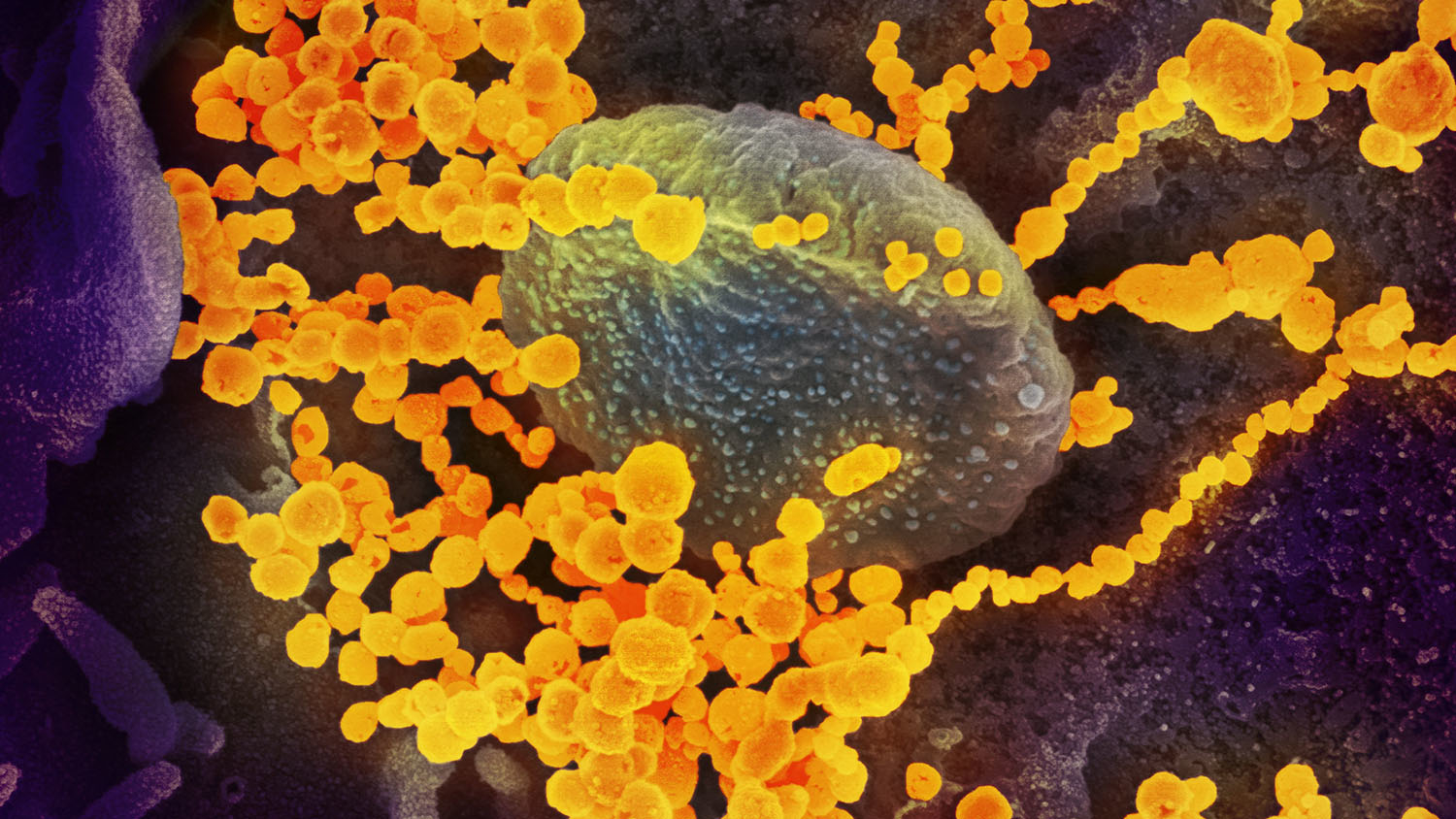Researchers Demonstrate Self-Sterilizing Polymers Work Against SARS-CoV-2

Researchers from North Carolina State University, Boston University and Kraton Corporation have demonstrated a family of self-sterilizing polymers that are effective at inactivating coronaviruses, including SARS-CoV-2 – the virus that causes COVID-19. The work opens the door to a suite of applications that could help to reduce the transmission of COVID-19 and other diseases.
“Our work here provides conclusive evidence that these materials, anionic polymers, can inactivate human coronaviruses quickly and efficiently,” says Richard Spontak, co-author of a paper on the work accepted for publication in Advanced Science. Spontak is a Distinguished Professor of Chemical and Biomolecular Engineering and a professor of materials science and engineering at North Carolina State University.
“If we want to coat high-contact surfaces such as textiles, countertops or walls – it’s possible,” says Frank Scholle, co-author of the paper and an associate professor of biological sciences at NC State. “Virus inactivation will occur as long as there is sufficient humidity,” adds Scholle, who is also director of NC State’s Center for Advanced Virus Experimentation (CAVE).
When these anionic polymers absorb water, protons can travel through nanoscale channels to the surface, creating a highly acidic environment capable of inactivating viruses and killing bacteria and mold. The research team had previously demonstrated that several of the anionic polymers were effective against a range of pathogens, including methicillin-resistant Staphylococcus aureus (MRSA) and a strain of influenza.
“Based on what we’ve learned, we’ve been able to identify a fundamentally new inactivation mechanism and a family of polymers that expands the health care sector’s arsenal for fighting the spread of coronavirus,” Spontak says.
In laboratory experiments, the researchers demonstrated that specific anionic polymers could fully inactivate SARS-CoV-2 in just 5 minutes, and fully inactivate a human coronavirus surrogate called HCoV-229E in 20 minutes.
Kraton Corporation is in the process of evaluating applications for how some of these polymers might be used in a variety of settings.
“We are thankful for the opportunity to collaborate with NC State University and Boston University to address an important and urgent need for long-lasting antimicrobial performance,” says Vijay Mhetar, Kraton’s Chief Technology Officer. “Building upon this scientific discovery, Kraton Corporation is actively seeking regulatory approvals and evaluating application uses in transportation, health care, and building and infrastructure.”
The paper, “Rapid and Repetitive Inactivation of SARS-CoV-2 and Human Coronavirus on Self-Disinfecting Anionic Polymers,” was published online Feb. 9. Co-first authors of the paper are Bharadwaja Peddinti, a former Ph.D. student at NC State, and Sierra Downs of Boston University. The paper was co-authored by Jiaqi Yan, a Ph.D. student at NC State; Reza Ghiladi, an associate professor of chemistry at NC State and member of CAVE; Anthony Griffiths, an associate professor of microbiology and member of the National Emerging Infectious Diseases Laboratories at Boston University; Steven Smith of The Procter & Gamble Company; and Vijay Mhetar and Roger Tocchetto of Kraton Corporation.
The work was performed with support from NC State’s Nonwovens Institute and Comparative Medicine Institute; Halyard Health; Kraton Corporation; and Boston University.
-shipman-
Note to Editors: The study abstract follows.
“Rapid and Repetitive Inactivation of SARS-CoV-2 and Human Coronavirus on Self-Disinfecting Anionic Polymers”
Authors: Bharadwaja S.T. Peddinti, Jiaqi Yan, Reza A. Ghiladi, Frank Scholle and Richard J. Spontak, North Carolina State University; Sierra N. Downs and Anthony Griffiths, Boston University; Steven D. Smith, Procter & Gamble Company; Vijay Mhetar and Roger Tocchetto, Kraton Corporation
Published: Feb. 9, Advanced Science
DOI: 10.1002/advs.202003503
Abstract: While the ongoing COVID-19 pandemic affirms an urgent global need for an effective vaccine as second and third infection waves are spreading worldwide even before the first wave has ended, it has also revealed the importance of mitigating the transmission of SARS-CoV-2 through the introduction of restrictive social practices. Here, we demonstrate that an architecturally- and chemically-diverse family of nanostructured anionic polymers yield a rapid and continuous disinfecting alternative by which to inactivate coronaviruses and prevent their transmission from contact with contaminated surfaces. Operating on a dramatic pH-drop mechanism along the polymer/pathogen interface, polymers of this archetype inactivate the SARS-CoV-2 virus, as well as a human coronavirus surrogate (HCoV=229E), to the minimum detection limit within minutes. Application of these anionic polymers to frequently touched surfaces in medical, educational and public-transportation facilities, or personal protection equipment, can provide rapid and repetitive protection without detrimental health or environmental complications.
This post was originally published in NC State News.


